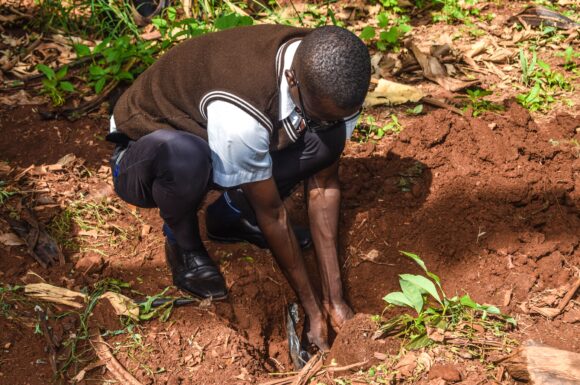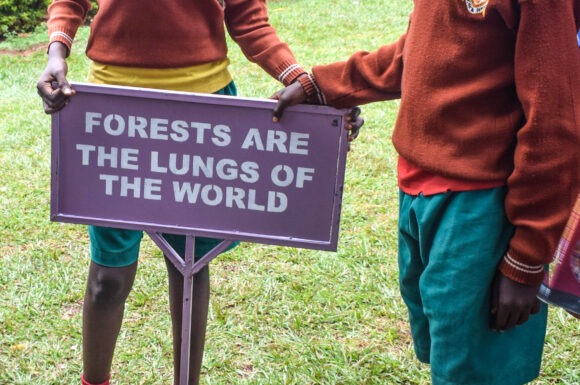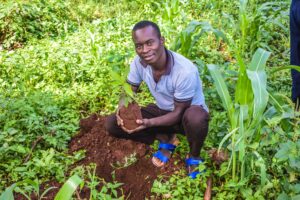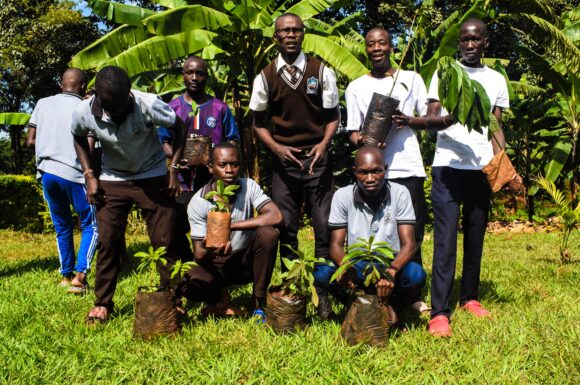Living in the Climate Crisis
Young people are disproportionally affected by the climate crisis. The voices of young Africans are often unheard in public and political discussions of climate change impacts, adaptation and mitigation.
Restless Development’s Living in Climate Crisis report, drawing from 1214 survey responses and 102 interviews with young people in Uganda found that lower education aligned with misidentifying the causes of climate change, and with low awareness of projected future changes.
Despite this, young people have been at the forefront of fighting for climate justice and holding decision makers responsible.
Fighting the climate crisis through education.

A key recommendation of our report is to boost climate change education in primary school. Since children and young people are increasingly exposed to the negative consequences climate change, having a good understanding of the causes and how to respond will help to equip them for the present and future.
The Taking Climate Change to Schools (TACCS) project commenced on 1st July 2022 and will run till January 2023. The project aims to boost primary level climate change education in schools in the Jinja and Karamoja regions of Uganda. The primary level is chosen because it avails an opportunity to provide a firm foundation for climate change education at the higher and tertiary institutions in Uganda.
The project aims to achieve the following objectives:
- Introduce practical teaching and learning tools for climate change education in primary schools.
- Cultivate student interest in developing climate innovations through regular competitions and inter-school engagements. That is climate clubs, and debates to mention but a few.
- Develop and test a model for the integration of climate education into national primary school curricula.



Developing a resource pack for schools.
The project will develop an informative, useful, and locally contextualized resource pack, which includes practical and playful activities like growing food in school. This resource pack will purposefully include locally relevant examples, to teach pupils what climate change looks like in Uganda. Furthermore, it will include playful, practical, and problem-solving activities, to teach some of the thinking and responsiveness needed as climate disruptions worsen. We will ensure that the content covers the drivers of climate change, so that pupils and teachers understand the causes of the challenges in both local and global contexts.
The project will also run a capacity building workshop for teachers to teach the material and share the resource pack. Two workshops will be run to engage teachers in Jinja and Karamoja regions so as to boost their knowledge and confidence to teach on this topic.
Team members will spend time in schools to learn more about the needs and preferences of the target audiences (pupils and teachers). Furthermore, it offers the chance to test out teaching ideas and to engage pupils directly in activities. Some of these activities include running inter-school climate change debating competitions; which would invite a public audience and would be captured in the media to extend awareness of climate change.


The project will network with the Government, particularly the National Curriculum Development Centre and other Uganda-focused education actors.



